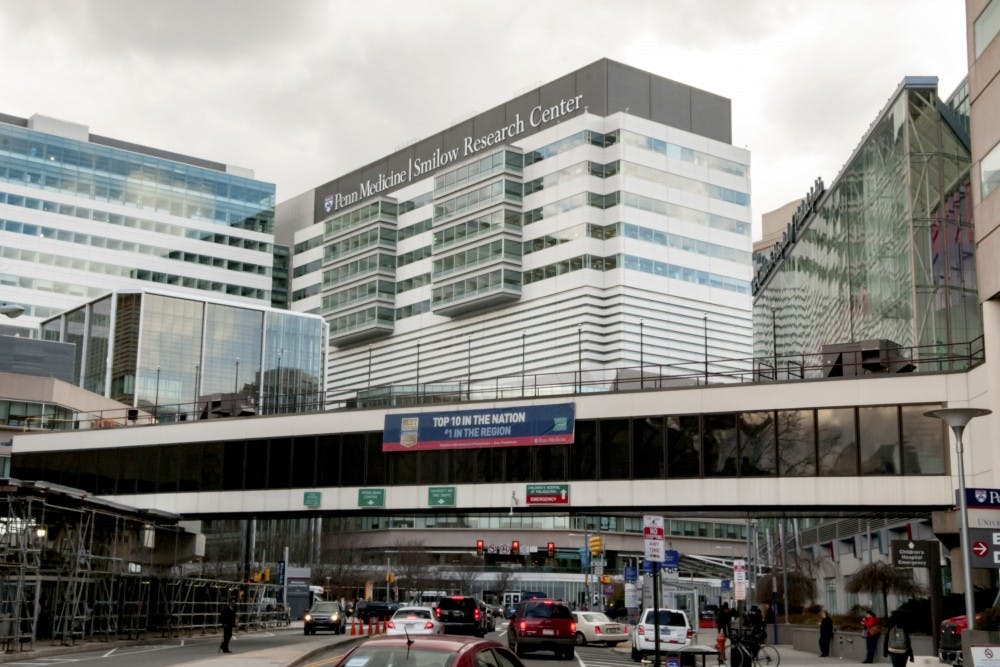
“You come to work not just to ‘survive' your job. It’s to survive and grow, because Penn has this culture of excellence," says Maria Molina, an award-winning nurse practitioner.
Credit: Zach SheldonPenn’s sprawling medical system, home to major scientific innovations and the largest capital expenditure in the University’s history, just added another distinction: a nomination as one of the best employers in the United States, fromto Forbes magazine.
Penn Medicine placed 7th in the country on the list.
Several of Penn Medicine’s over 35,000 employees spoke to The Daily Pennsylvanian this week about the honor and why their workplace is one of the nation’s best.
Michael Ashburn, the director of Penn medicine’s pain management center and an anesthesiology professor, noted the historical significance of working at the home of America’s first hospital and first medical school.
“That sense of history gives people a foundation on which to try to make their own history,” he said.
Maria Molina, who has been a nurse practitioner with the heart transplant team for the past seven years, said, “You come to work not just to ‘survive’ your job. It’s to survive and grow, because Penn has this culture of excellence.”
She added that this high-level climate is not a double-edged sword that forces people to work too hard. Instead, she said employees are like-minded, committed to what they do and ready to collaborate.
Medical oncologist Kim Reiss Binder specializes in gastrointestinal malignancies. In an interview with the DP, she emphasized Penn Medicine’s focus on teamwork and praised the dedication of her administrative assistant, nurses and physician’s assistants.
This way, she said, no employees get too overwhelmed and the patients assigned to her team receive the best care possible. She added that Penn Medicine has a strong emotional support department as well for patients and families going through rough times.
As in any good workplace, Penn Medicine employees also know how to have fun.
Reiss Binder described annual, “very raucous, very entertaining” brunches at her division chief’s house with the women in the oncology department.
“You feel like you’re just hanging out with a bunch of really cool ladies who happen to be absolutely, unbelievably brilliant and extraordinary scientists,” she said. “I think that was the moment for me when I went to that brunch. I was like, ‘I am part of an unbelievable group of women.’”
Molina lauded her mentor as well, a former president of the American Heart Association who has written textbooks about heart failure.
“When I first met her, I was starstruck,” she said. “That’s probably why I have this culture of, ‘I have to strive harder,’ because I am with the best.”
Molina, who earned an International Nursing Excellence Award in 2015, was also inspired by a collaborating physician to get started in the research field.
“There’s a number of opportunities,” she said. “It’s difficult not to excel in anything because the opportunities are just there.”
The Daily Pennsylvanian is an independent, student-run newspaper. Please consider making a donation to support the coverage that shapes the University. Your generosity ensures a future of strong journalism at Penn.
Donate



